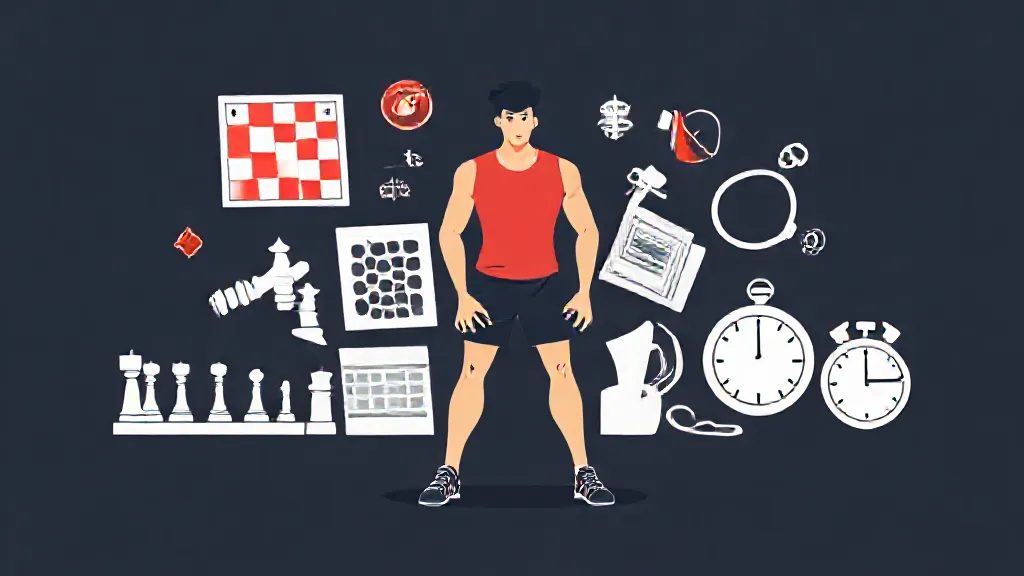In the realm of sports, physical prowess is often celebrated, but the mental demands of various sports are equally crucial to success. Mental toughness, focus, and psychological resilience can be the difference between victory and defeat. This article delves into why certain sports are more mentally demanding than others, examining the psychological challenges athletes face, the nature of the sports themselves, and the impact of these demands on performance and well-being.
Understanding Mental Demands in Sports
Mental demands in sports refer to the cognitive and emotional challenges athletes encounter during training and competition. These demands can include pressure to perform, the need for strategic thinking, and the ability to manage anxiety and stress. For instance, sports like tennis and golf require intense concentration and the ability to make quick decisions under pressure, making them mentally taxing.
In contrast, team sports like football or basketball may distribute mental demands across players, but they also involve complex strategies and communication that can be equally challenging.
Individual vs. Team Sports: A Comparative Analysis
Individual sports, such as gymnastics or swimming, often place the entire burden of performance on the athlete.
This can lead to heightened levels of anxiety and self-doubt, as the athlete's success hinges solely on their own capabilities. Conversely, team sports allow for shared responsibility, which can alleviate some mental pressure. However, the need for coordination and teamwork introduces its own set of mental challenges, including the necessity to read teammates and opponents, which can be mentally exhausting in high-stakes situations.
The Role of Strategy in Mental Demands
Sports that require intricate strategies, such as chess or American football, elevate mental demands significantly. Athletes must constantly analyze their opponents, anticipate moves, and adjust their strategies in real-time. This cognitive load can be overwhelming, especially during high-pressure moments.
The mental acuity required in these sports often leads to a greater emphasis on psychological training, where athletes learn to enhance their cognitive skills, improve focus, and develop better decision-making processes.
Pressure and Performance: The Psychological Toll
The pressure to perform at high levels can lead to mental fatigue, burnout, and even anxiety disorders in athletes. Sports with high visibility, such as professional basketball or soccer, can amplify this pressure due to media scrutiny and fan expectations.
The psychological toll can manifest in various ways, from performance anxiety to depression. Understanding these pressures is crucial for coaches and sports psychologists to implement strategies that help athletes cope and thrive under stress.
Coping Mechanisms: Mental Training in Sports
To combat the mental demands of their respective sports, many athletes engage in mental training techniques.
Visualization, mindfulness, and cognitive-behavioral strategies are commonly employed to enhance focus and reduce anxiety. For example, elite athletes often visualize successful performances to build confidence and prepare mentally for competition. These techniques not only improve performance but also contribute to overall mental health, helping athletes maintain a balanced perspective amid the pressures of competition.
Cultural Influences on Mental Demands
Cultural perceptions of sports can also shape the mental demands placed on athletes. In cultures that prioritize winning at all costs, athletes may experience increased pressure, leading to heightened mental stress. Conversely, cultures that emphasize participation and personal improvement may foster a healthier mindset, reducing the psychological burden on athletes.
Understanding these cultural factors is essential for developing supportive environments that prioritize mental well-being alongside athletic performance.
The Importance of Support Systems
Support systems play a pivotal role in helping athletes navigate the mental demands of their sports. Coaches, family, and sports psychologists can provide essential guidance and encouragement.
A strong support network can help athletes manage stress, build resilience, and maintain a healthy balance between their sport and personal lives. This support is particularly vital in sports that are more mentally demanding, as the challenges can be isolating and overwhelming without proper assistance.
Conclusion: Balancing Mental and Physical Demands in Sports
Ultimately, recognizing the mental demands of various sports is crucial for fostering a holistic approach to athlete development.
By understanding the unique psychological challenges associated with different sports, stakeholders can implement better training programs, support systems, and coping strategies. This comprehensive approach not only enhances athletic performance but also promotes the overall well-being of athletes, ensuring they can thrive both on and off the field.
